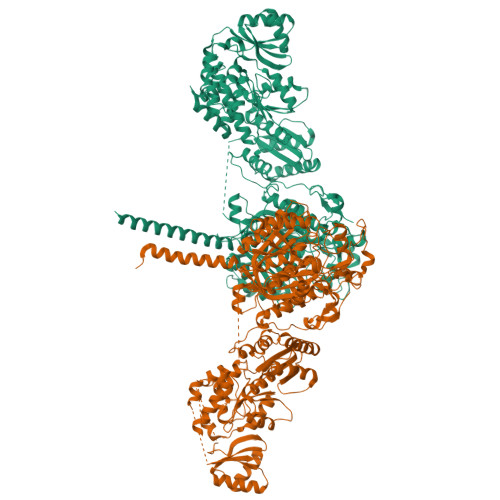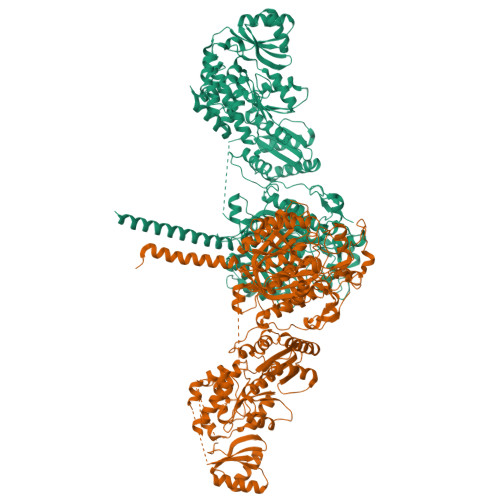Cyanobacterial polyketide synthase docking domains: a tool for engineering natural product biosynthesis.
Whicher, J.R., Smaga, S.S., Hansen, D.A., Brown, W.C., Gerwick, W.H., Sherman, D.H., Smith, J.L.(2013) Chem Biol 20: 1340-1351
- PubMed: 24183970
- DOI: https://doi.org/10.1016/j.chembiol.2013.09.015
- Primary Citation of Related Structures:
4MYY, 4MYZ, 4MZ0 - PubMed Abstract:
Modular type I polyketide synthases (PKSs) are versatile biosynthetic systems that initiate, successively elongate, and modify acyl chains. Intermediate transfer between modules is mediated via docking domains, which are attractive targets for PKS pathway engineering to produce natural product analogs. We identified a class 2 docking domain in cyanobacterial PKSs and determined crystal structures for two docking domain pairs, revealing a distinct class 2 docking strategy for promoting intermediate transfer. The selectivity of class 2 docking interactions, demonstrated in binding and biochemical assays, could be altered by mutagenesis. We determined the ideal fusion location for exchanging class 1 and class 2 docking domains and demonstrated effective polyketide chain transfer in heterologous modules. Thus, class 2 docking domains are tools for rational bioengineering of a broad range of PKSs containing either class 1 or 2 docking domains.
Organizational Affiliation:
Chemical Biology Graduate Program, University of Michigan, Ann Arbor, MI 48109, USA; Life Sciences Institute, University of Michigan, Ann Arbor, MI 48109, USA.



















